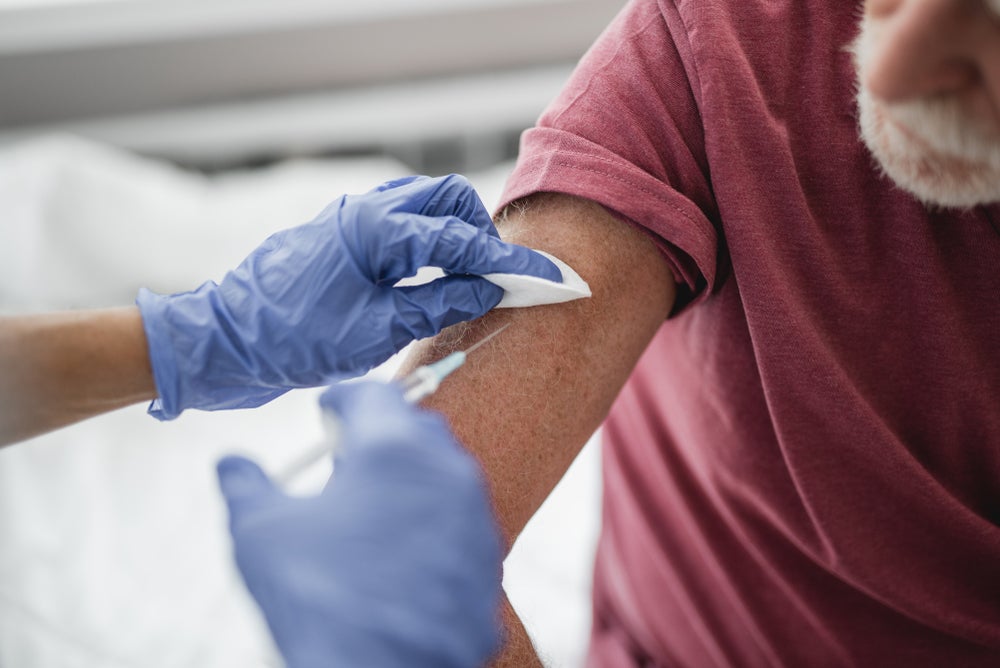
Scientists have been searching for drugs to repurpose for Covid-19 since the pandemic began, and researchers in India are exploring a surprising potential treatment: a century-old tuberculosis vaccine.
A team at the Indian Council of Medical Research (ICMR)’s National Institute for Research in Tuberculosis has investigated whether the Bacillus Calmette-Guérin (BCG) vaccine, traditionally used to inoculate against tuberculosis, could reduce Covid-induced inflammation in elderly people.

Discover B2B Marketing That Performs
Combine business intelligence and editorial excellence to reach engaged professionals across 36 leading media platforms.
The ICMR team said a major concern about using the BCG vaccine for Covid-19 was “the possibility of the vaccination inducing highly proinflammatory responses and thus worsening infection or disease in otherwise asymptomatic or mild cases”.
To understand the effect of BCG vaccination and inflammation in relation to Covid-19, the researchers evaluated the jab in 82 healthy elderly individuals, aged between 60 and 80, living in coronavirus infection hotspots.
Why is the BCG vaccine being explored?
One of the most widely used vaccines in the world, BCG is known to offer effective and broad protection against various diseases – including respiratory ones – by inducing nonspecific immunity effects. The jab is being evaluated against Covid-19 in multiple studies worldwide.
Valerie Koeken is a postdoctoral researcher focusing on infectious diseases, tuberculosis and vaccination research at Radboud University Medical Centre in the Netherlands. Her team has been researching BCG’s potential for other infectious diseases for a number of years, and began looking into the vaccine’s nonspecific immune effect on Covid-19 when the pandemic struck.

US Tariffs are shifting - will you react or anticipate?
Don’t let policy changes catch you off guard. Stay proactive with real-time data and expert analysis.
By GlobalData“Our group, but also a lot of other groups throughout the world, and also in collaboration with hospitals, started doing these bigger trials to see if BCG indeed has an effect on protection from Covid,” Koeken says.
What have researchers found?
The ICMR team found that study participants vaccinated with BCG had significantly reduced blood levels of proinflammatory proteins called cytokines. These preliminary findings are significant; the lung damage associated with severe Covid-19 infection is caused by the production of high levels of cytokines, also known as a cytokine storm.
“One of the hypotheses here could be that BCG reduces the inflammatory status of a person,” Koeken says, “and that could help when these patients get Covid, so they don’t get the severe proinflammatory response.”
Older people often have less effective immune systems, leaving them at higher risk of severe illness from Covid-19. If the BCG jab is effective at curbing inflammation, it could help protect elderly individuals who are unable to access Covid-19 jabs from the worst effects of the disease.
An earlier study, conducted as part of the ACTIVATE trial evaluating BCG’s potential to prevent infections in the elderly, also found that BCG revaccination resulted in a 68% risk reduction for total Covid-19 diagnoses and could serve as a preventative measure against the virus. This data is yet to be peer-reviewed.
Koeken said it is “important to emphasise” that these are merely observational studies, and that the link between BCG and reduced Covid-19 inflammation is, at this stage, just a hypothesis.
What could this mean for low-income countries?
Though it’s too early to draw conclusions, the findings so far are promising. Several low-income countries across the world are yet to administer a single dose of a Covid-19 vaccine, meaning elderly and other high-risk populations remain vulnerable to the virus.
BCG is a common and more easily accessible vaccine that, if proven to be effective in tackling severe Covid-19, could offer much-needed protection to those in vaccine-scarce countries who are at risk of serious illness from the disease. BCG vaccine production is well diversified and its cost is as low as four cents per dose, with a number of manufacturers supplying jabs through multi-year contracts with UN aid organisation UNICEF.
“We already know that [BCG] provides protection against respiratory tract infections though the enhancement of the innate immune system, which has been shown in the elderly as well,” Koeken explains.
“This could be very promising for countries where it might take a while to roll out the current Covid vaccines we have in place, because BCG is already routinely provided in these countries.”
After the ongoing trials are completed, the next step, Koeken says, is assessing how Covid-19 infection affects the immunity of those vaccinated with BCG.
“I think it’s also important that these trials are being conducted in different countries and in different settings, because you can imagine that the epidemic is not the same everywhere, and is not driven by similar factors everywhere,” she adds.
“It could be that it’s beneficial in a certain age group, but not so much other age groups. I do think that, for example, for the elderly, it could have a very important impact, because we also know that in the elderly, traditional vaccines often work less [well].
“The elderly are the ones who are at most risk of developing severe Covid, and maybe giving them BCG can give them the boost that they need to protect themselves from Covid properly.”





